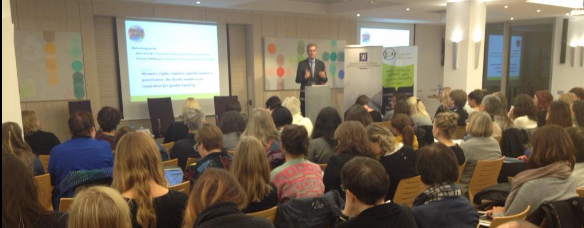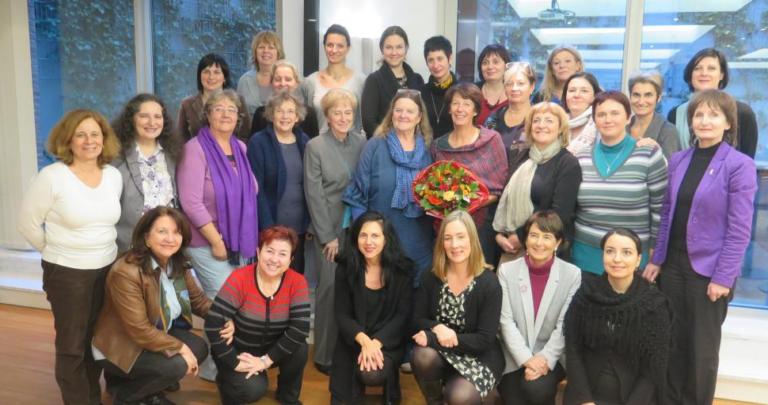[Brussels, 10 November 2012] The EWL welcomes the report of the online discussion organised by UN Women in light of the 57th session of the Commission on the Status of Women, which will take place in March 2013 in New York and will address violence against women and girls as its priority theme.
Between 23 July and 7 August 2012, UN Women ran a dynamic online discussion to support preparations for the forthcoming 57th Commission on the Status of Women which brought together the views of diverse respondents on the good practices and key gaps and challenges in the prevention of and response to violence against women and girls.
Participants included representatives from civil society, government organizations, research and leadership institutions and UN agencies in many countries from all regions of the world.
Regarding prevention, among the major observations made by participants is the need for coordinated multi-sectoral approaches that address stereotypes at their roots through early education, media engagement, and capacity-building for service providers and policy makers.
They also highlighted a series of gaps: Many laws and policies are discriminatory; Efforts to address prevention are uncoordinated, ill-funded and rarely monitored; icy makers, public servants and traditional leaders are not gender sensitized; Context-sensitive responses require more research on attitudes and behaviours; Key strategic groups and influencers are being neglected; The media continue to reinforce stereotypes; Cultural change is not addressed in remote or marginalized communities; Women must be economically empowered to redress power imbalances.
Regarding services, many commented that where laws on gender-based violence have been enacted, a lack of enforcement and awareness has led to low implementation. Other participants spoke of intense bureaucratic processes, where the threshold of proof for abuse is high for women who apply for free legal aid. Gaps and challenges identified in this field are the following: Services remain uneven in quality, longevity and sustainability; Many services are not well regulated, and do not take a rights-based approach; Services need to be better funded, and underscored by comprehensive research; Services remain badly coordinated and heavily bureaucratic; Services need to be more broadly distributed, and preceded by comprehensive outreach; Service staff and policy makers need to be better trained and sensitized; Services must be better designed for children and girls, and for women subject to multiple forms of discrimination; More efforts must be made to ensure social protection and reintegration of survivors.
The discussions will be taken into consideration in the development of the Secretary-General’s Reports to the Commission on the Status of Women.
Click here to download the report in English, Spanish or French.



